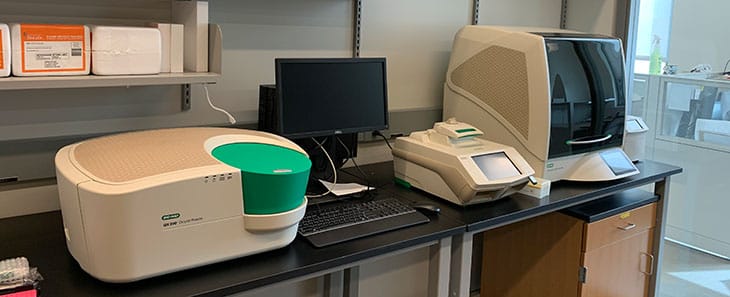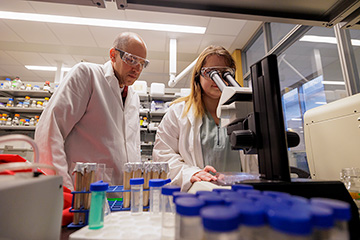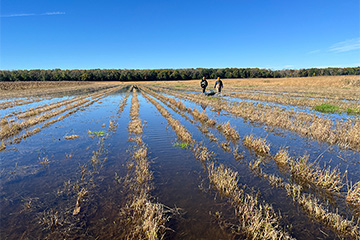State enlists CMU faculty in COVID-19 early warning efforts
Pilot project will test wastewater for signs of the virus
Public health authorities need to know when COVID-19 starts to spread in an area. That's not easy: The incubation period is long, and many infected people never have symptoms.
But there are clues if you know where to look.
Three Central Michigan University faculty members are engaged in a statewide early warning pilot program to search for signs of the virus in wastewater samples.
The SARS-CoV-2 virus that causes COVID-19 is shed in human waste, including from people who are not showing symptoms or have not yet become ill. It then can be detected in samples from sewers and wastewater treatment plants, with results often available sooner than from human clinical samples.
“The hope is that we can get a really good footprint of what the virus is doing.” — College of Medicine faculty member Michael Conway
The Michigan departments of Environment, Great Lakes and Energy and Health and Human Services are coordinating with local public health departments to enlist counties, universities and institutions across the state in the detection effort through Dec. 30.

The hope is that we can get a really good footprint of what the virus is doing," said College of Medicine faculty member Michael Conway, CMU's principal investigator for the project. "We have three months to collect and analyze data to see if this has utility."
Conway is working with CMU co-principal investigators Elizabeth Alm in Biology and Rebecca Uzarski in Environmental Health and Safety to collect and screen wastewater samples from a number of mid-Michigan locations for the virus' RNA.
They'll have new technology for their research: a $200,000 droplet digital polymerase chain reaction detection system supplied by the state on a five-year contract.
The entire statewide project is backed by a $10 million grant through the federal Coronavirus Aid, Relief and Economic Security Act.
Conway said once testing begins in mid-Michigan, the goal will be to identify general trends by sampling from large areas.
EGLE is coordinating sample collection, lab analysis, data reporting and communication with the local monitoring teams across Michigan, and MDHHS is providing project support to health departments, including how to integrate local wastewater data with other types of COVID-19 surveillance and public health responses.
"Since nearly 70% of Michigan residents rely on public wastewater systems, this COVID-19 surveillance program has the potential to provide critical life-saving data," said EGLE Director Liesl Clark in a news release. "The ability to predict outbreaks on college campuses, at nursing homes, prisons and other congregate care facilities could be a game-changer in our mission to slow the spread of this virus."





